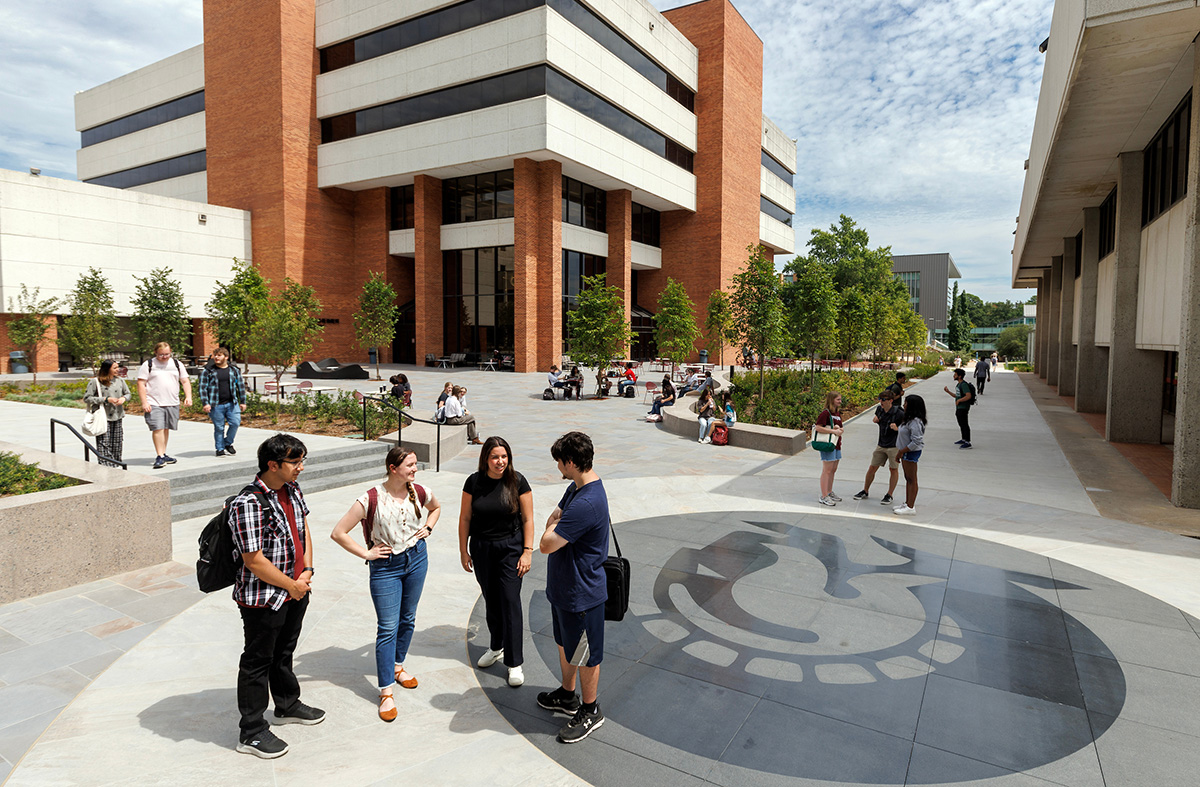
Founded in 1957 by legislative act, the UA Graduate Institute of Technology (GIT) originally sought to help students with undergraduate degrees in science and engineering disciplines earn advanced technical degrees and engage in scientific research. Housed in the old Medical School in downtown Little Rock, GIT featured classrooms and state-of-the-art laboratories for teaching and research.
For nearly three decades, students at GIT studied physical, organic, analytical, and nuclear chemistry; nuclear and atomic physics; electronics; instrumentation; and process control. Though these scientific departments are no longer housed at GIT, graduate students have continued to play a major role, with GIT funding supporting dozens of research and teaching assistantships. Over the years, these students have come from India, China, Iran, Iraq, Pakistan, Lebanon, Turkey, Korea, Taiwan, and Hong Kong, for graduate study in Arkansas, along with many Americans.
In 1987, GIT joined the main UA Little Rock campus. Today, GIT functions primarily as a service agency for the College of Engineering and Information Technology, the College of Arts, Letters, and Sciences, and the Central Arkansas research community, providing lab equipment, computers, machining, design consultation services, and technical support.
GIT partners with numerous organizations, ranging from NASA to local industry. GIT offers staff assistance in biosciences, bioengineering, and chemistry; provides design assistance and educational facilities; and houses STRIVE, a summer educational program for Arkansas teachers.
Mission
The Graduate Institute of Technology (GIT) exists to further the research and technological goals of the scientific, engineering, and technology community in Central Arkansas. GIT provides high-level support in the areas of machining, electronics, welding, and woodworking, as well as support for the university’s computational needs, including high speed networking, simulation, and specialty server maintenance.
GIT is run by 15 permanent staff members appointed from the technical staff, research associate, and faculty levels. These dedicated professionals work closely with GIT’s clients to increase the quality, scope, and capabilities of projects on campus and in the community.
GIT manages all major scientific and engineering instruments and equipment for the College of Arts, Letters, and Sciences and the Donaghey College of Engineering and Information Technology, including the NMR, SEM, MS, and Structural Testing systems. Additionally, GIT facilitates the Arkansas STRIVE program and statewide NASA programs, which include the Arkansas Space Grant Consortium and the NASA EPSCoR program.

